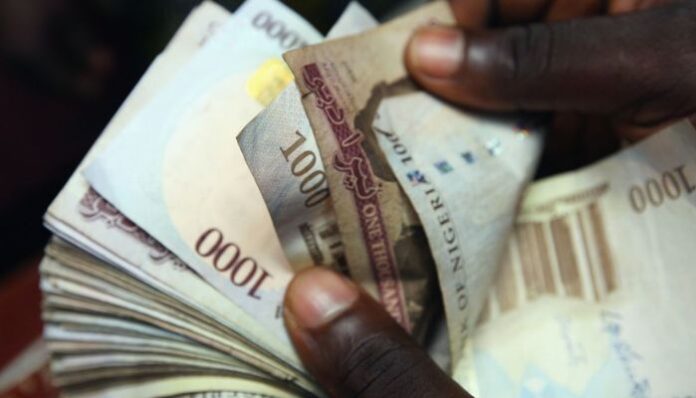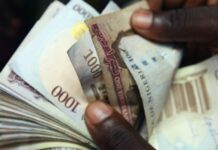A downward slope in electronic payment transactions might have caused a 31.35 per cent increase in the value of cash transactions from N37.67tn as of February 2023 to N49.48tn as of March 2023. This is after an increase in failed transactions in February caused e-payments to fall by 4.83 per cent from N39.58tn in January.
The value of cashless transactions in March also set a new record for cashless transactions in Nigeria within a month, eclipsing the previous record ofN42.86tn set in December 2022.
According to new industry data from the Nigeria Inter-Bank Settlement System on Monday, Nigerians used electronic gateways 1.35 billion times in March, 448.54 million times more than the 901.46 million times they did in February. The NIBSS records cashless transactions from the Nigeria Instant Payment System and Point of Sales terminals. The value of total instant payment in March was N48.33tn. PoS terminals recorded N1.15tn in total transactions in the month.
More Nigerians are depending on mobile devices for transactions as their usage increased by 106.93 per cent month-on-month allowing for a 61.99 per cent increase in transaction value from N2.56tn in February to N4.14tn in March. Cashless transactions grew by 44.84 per cent to N126.73tn in first quarter of 2023 from N87.49tn in the corresponding period of 2022. Data from the NIBSS suggests that the country’s banking infrastructure is shaking off glitches that initially impacted the ability of customers to rely on cashless transactions.
Since a now postponed Central Bank of Nigeria’s naira redesign policy forced many Nigerians to electronic forms of payment, the volume of cashless transactions in the country has grown. Despite this growth, failed transactions are still a common sight in the country’s payment landscape. On Easter Sunday, customers of Guaranty Trust Bank Plc were unable to access the bank’s digital channels until the latter part of the day, leaving many stranded.
Recently, the Instant Payment channel of the NIBSS suffered a glitch that lasted for about four hours, throwing many Nigerians into confusion in the process. On Monday, Cowrywise, a fintech, explained to its customers that intermittent downtimes with a couple of banks as well as the central processor of electronic payments in the country were affecting its ability to serve them well. It said, “There have been intermittent downtimes with a couple of banks as well as the central processor of electronic payments, resulting in substantial delays with transfers. “We apologise for any delays that you may have encountered and can assure you that steps are being taken to ensure that any potential future delays are kept to a minimum.”
According to the Group Managing Director of RoutePay, FemiAdeoti, the implementation and adoption of cashless policy caused the country’s banking system to experience a higher-than-expected increase in the volume of transactions which hampered service delivery. He told The PUNCH, “System downtime and failure have become the order of the day. The banks must improve their infrastructure and services to be able to accommodate the new move to a cashless society.”
The CBN is optimistic that cash transactions will reduce by2025, with cashless terminals becoming a more preferred means of payment. Many Nigerians are likely to disagree with the apex bank based on their experience in the last three months. Naira weakens at parallel market, gains at investors’ window On Monday, the performance of the naira was mixed across the various market segments in the currency market .
At the parallel market, the naira weakened by 0.41 per cent to close at N741 against the greenback; while at the I &E window, the naira strengthened by 0.38 per cent to close at N462.25/dollar against Friday’s exchange rate of N464.00/$1. The naira at the interbank segment however closed flat atN460.93/dollar. In the P2P category of the forex market, the value of the local currency weakened to N743.4 on Monday against Sunday’s exchange rate ofN741.1, based on Binance data.
An economist, Professor Akpan Ekpo, speaking with The PUNCH stated that even with the strengthening of the naira at the I&E window, there was a need for the Central Bank of Nigeria to close the gap between the black market and the official market.
“The gap between the official rate and the black market rate is too wide. What CBN should do is narrow that gap. It is a function of demand and supply. You don’t have enough (forex) from oil to shore up your reserves. The economy has to be diversified; you have to export non-oil products to earn foreign exchange. That is the only way to close that gap,” he said.











